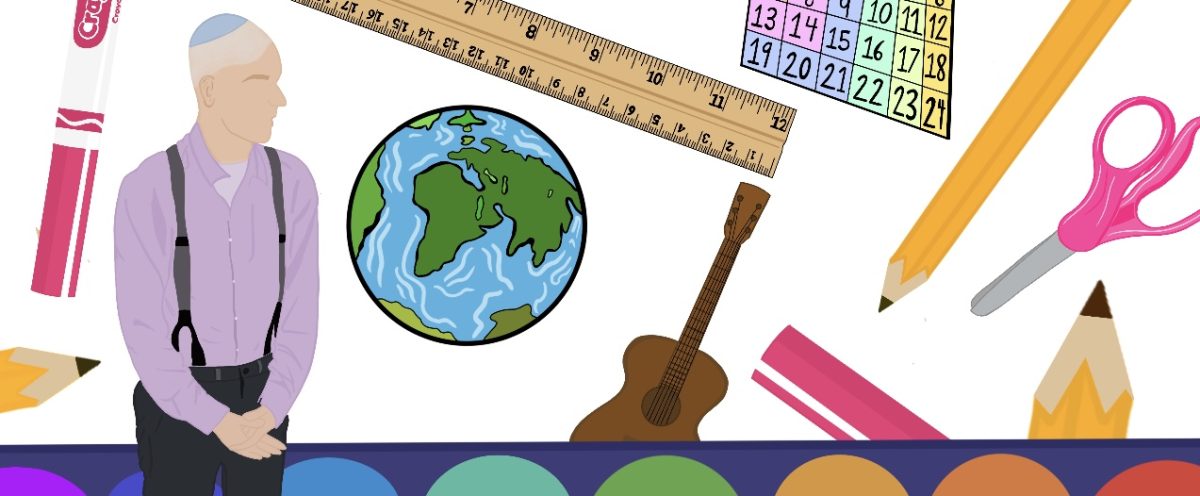Friends can be one of the biggest supporters during a time of mental struggle. The people who stick with those struggling build the strongest relationships. Yet sometimes, it can become too much for a friend who is listening to all of the issues. The regrets of not creating boundaries around the limits of support one can offer a struggling friend, might start to affect their own mental health.
There is a point when, as a friend, you might feel more like you have an obligation to take care of them. This can lead to intense worry about what might happen if they are not around their struggling friend for a certain amount of time (Mental Health Foundation).
The mental health crisis in America has a ripple effect. “Recent studies show that depression, anxiety, suicide and loneliness are escalating, and that GenZ is struggling now more than ever before,” writes Dr. Gene Beresin, executive director of The MGH Clay Center for Young Healthy Minds. Due to the struggle to obtain treatment from mental health professionals, there are “barriers for seeking health.” Complications of finding help lead to people, especially teens sharing their struggles with their friends instead of a professional (Beresin).
When it comes to teenagers, it feels more comfortable to vent to your friends. In the case of a child’s mental health struggles, a child or teen might think that parents or trusted adults could turn an issue into a bigger deal than they are prepared for.
Orli Zigler, a sophomore at HBHA, said, “I’ve had friends come to me for support with struggles that they’re having, and sometimes they just want to vent or advice. A lot of the time I feel like I am able to relate to their struggles.”


 When Zigler listens to struggles similar to hers, it feels more relatable and easier for her to give advice. Zigler says, “It is a trigger to my own struggles,” and it is more challenging to separate her struggles from what she is hearing.
When Zigler listens to struggles similar to hers, it feels more relatable and easier for her to give advice. Zigler says, “It is a trigger to my own struggles,” and it is more challenging to separate her struggles from what she is hearing.
Empathy is a big part of being a listener and supporter of struggling friends. Dr. Nicole Price, CEO of Lively Paradox, discusses the importance and different types of empathy, boundaries, expectations, and just hearing people out.
When it comes to empathy, “you need to understand what other people think, feel, and believe to be able to get your work done,” Price said.
Likewise, Zigler understands the importance of listening to her friends, especially when they are seriously conversing about their mental health.
Price continued, “There are multiple types of empathy, and when people are struggling with depression they tend to find their way to people who are naturally empathetic,” Price said. People who can “sense others’ emotions,” have emotional empathy. This trait makes someone easily approachable and gives off the feeling of a safe space.
The understanding of someone else’s emotions and recognizing those emotions while knowing you are not the one struggling takes cognitive and mental empathy. The goal is to “make space for you to express, not to do something necessarily about what you are sharing,” Price said. If someone is constantly in a depressive state, and there is nothing at the moment that can be done, then the listener knows their role is to just hear them out.
Maggie Osgood Nicholls, Director of Youth Arts at the J KC (Jewish Community Center of Kansas City), has a lot of experience with people who have mental health struggles, including close friends and family members.
Osgood Nicholls has experienced some mental health struggles of her own, but, “one of the things it (mental health struggles) really teaches you is when people are aware of their own imbalances, like when you have that diagnosis and you understand,” not everything you hear in your brain is true.
Being an adult, Osgood Nicholls has “learned a lot about empathy, and how different people need different things at different times.” She has been in situations where one of her best friends has been struggling, and the weight of empathy and help is put onto her, but sometimes one person can not fix everything.
In situations when someone constantly hears about another person’s struggles, “you are always going to listen, but you don’t have to be emotionally invested in the listening,” Price said. This is a way to create a boundary for the listener’s mental health.

Over time, Osgood Nicholls has created what she needs in the form of boundaries. When Osgood Nicholls is experiencing times when she is too busy and stressed to keep up with her close friend because of the abundance of struggles, she and a common friend of the one who is struggling, “have a system organized when we can tap out for each other,” and “use each other as a support system without even being friends ourselves,” so they each know someone will be there for their struggling friend they have in common.
An easy way to set boundaries, is if your struggling friend texts or calls for help, acknowledge the message or call, but do not answer the phone before an important event, or when you need to manage your own headspace. Just listen, and repeat back the issues the person is complaining about. At the same time, make sure you are in touch with your positive feelings and do not enable yourself to feed off of the negative venter’s emotions (Price).
For young people, “You do not need to always be accessible. That is not good for your mental health,” Price said. It is not good to always feel the need to respond to someone as soon as you see a notification.
If someone was a close friend or family member’s emotional sponge and did not set boundaries, but has drifted from the struggling person, even when small things come up they can get triggered. This feeling “is all the stuff you used to feel when you used to have a hundred [percent of dealing],” Price stated.
If you never express your feelings and the triggers you get from spending time with or receiving messages from someone who vents to you, then those triggers might not go away. You have to use your courage to accomplish somatic empathy, by acknowledging and saying your feelings, and what overwhelms you to this person.
Zigler has tried creating boundaries with herself, and if she is “starting to get triggered,” then she knows she has hit her boundaries. Zigler said, “I have a hard time setting boundaries … because I don’t want my friends to feel unsafe talking to me or leaning on me.”
Even for adults, creating boundaries is a challenge. Osgood Nicholls explained, “It’s really difficult to create boundaries.” She additionally shared, “You don’t want every time that you talk to someone to be the last time that you talk to them,” so it is important to remember yourself at the forefront along with finding someone who is “more equipped to handle” the situation.
Being someone’s go-to person when it comes to their mental health struggles can take a toll on their listener’s mental health. The boundaries and expectations from both sides in the relationship need to be out in the open, so both parties are able to help themselves and each other. Creating boundaries and having empathy for your struggling friend is a successful way of properly supporting your friend while keeping both yourself and them safe.















